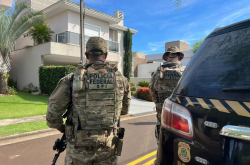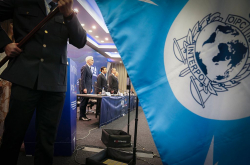Intelligence analysis
Police need timely, accurate criminal intelligence in order to understand crime trends so they can adapt their activities and policies accordingly. We support our member countries with intelligence through dedicated analysis on drug trafficking.
We generate analytical reports by combining national police information with data from other sources – such as international organizations, civil society and open sources. These help our member countries to expand their knowledge on crimes, highlight subjects of potential interest, and foster cross-border coordination.
Sharing intelligence data
We manage what we call a Drugs Analysis File, which is a repository of intelligence shared by 114 countries on illicit regional and international drug trafficking, including:
- Transnational criminal networks, their members and associates;
- Telephone numbers, website addresses and other media linked to drug trafficking;
- Modus operandi;
- Financial information used to conceal or launder assets;
- Locations associated with criminal activities.
Unlike our criminal databases, the analysis file includes not only police data but also a wider range of information from international organizations, civil society and open sources to further identify potential links. This information helps law enforcement and government officials to make more informed decisions.
Relief markings
Organized crime groups compress their drug packages with metal devices when they ship large volumes of drugs; this leaves traces on the packages and tablets.
We manage a database called Relief, which stores information about these markings. Officials in our member countries can check our database to see if the same device has been used to compress another seized drug package, in a different case, somewhere else in the world. Relief also stores information on tablet logos and the chemical composition of different drugs.









